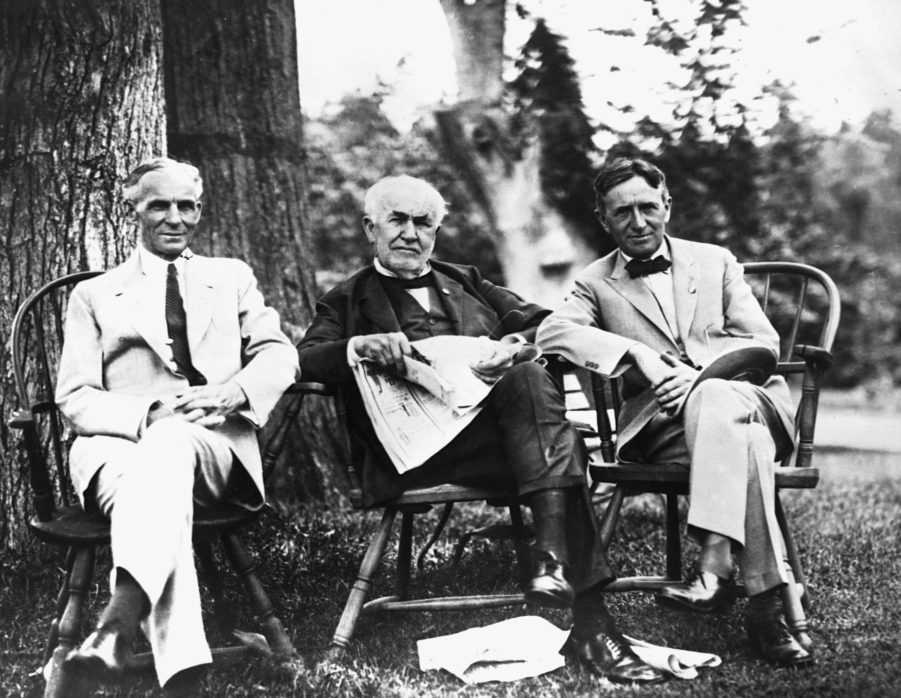
Henry Ford, Thomas Edison, and Harvey Firestone Were the Original RV Enthusiasts
The RV lifestyle began over 100 years ago. But soon after it was introduced to the public, some big names took up the hobby. Henry Ford, Thomas Edison, and Harvey Firestone all enjoyed long camping trips just like the average tin can traveler. So let’s see just how these three influential businessmen and inventors pioneered the American RV road trip.

Why did Ford, Edison, and Firestone decide to go on camping trips?
The adventures started as a publicity stunt for Ford, who was eager to show off how the Model T revolutionized travel. Now, Americans could go wherever they wanted, so long as they had a personal automobile. And since the Model T brought production cars to the masses, now they could.
Ford dragged Edison, Firestone, and naturalist John Burroughs on these adventures mainly because no road should be traveled alone. Besides, with two big names, Edison and Ford, they made headlines across the country with every breath.
In fact, each aspect of the trip was carefully planned by Ford to make sure he and the Model T looked good in the eyes of the press. They visited locations where they would look “relatable,” roughing it on campsites and eating from tin cans. It showed the American public that even the country’s richest and most influential men enjoy the simpler things, and the automobile can give you that.
But despite the good intentions of these trips, they weren’t exactly fun. In many cases, these were just business trips.
These road trips weren’t all sunshine and lollipops

Ford planned these trips so meticulously to the point where Edison’s wife, Mina, described them as “so elaborate and so fussy that there is no charm in it.” On top of that, while you could travel anywhere, there was no road network. Most of the paths were dug and used by horses, and while Model T’s were built tough, it made for an uncomfortable ride. Burroughs often complained that he was uncomfortable, cold, and didn’t enjoy the views (despite being a naturalist).
And the whole trip revolved around publicity, at least it did for Ford. That meant that those photographs of them living on the land were, largely, staged. The group often stopped at the most luxurious hotels and enjoyed hot meals after their photoshoots. And the media largely exaggerated the trips because it was Edison and Ford, who were viewed as heroes in society.
And in truth, Henry Ford was no hero. A known anti-semite, Ford and Edison often talked about the evils of Judaism, to the point where both Firestone and Burroughs stopped attending these elaborate trips. Sure, he may have pioneered the 40-hour workweek and raised wages, but that gleaming reputation is, at the very least, tarnished by bigotry.
Where can you read the full story of Ford’s complex road trips?

Written in 2019, The Vagabonds by Jeff Guinn details the full adventures and human flaws of these four men. Though NPR does explain that one major criticism of the book is that the road trips themselves aren’t that eventful. They were fraudulent publicity stunts.
Moreso, Guinn plays down the heavier topics, such as Ford’s view of Jewish people, as if they were minor hiccups on the journey, rather than radical ideologies. If you’re interested in learning how these influential men invented the American road trip, give it a read. But no matter what way you see it, these publicity stunts certainly shaped how RV travel evolved over the years.


